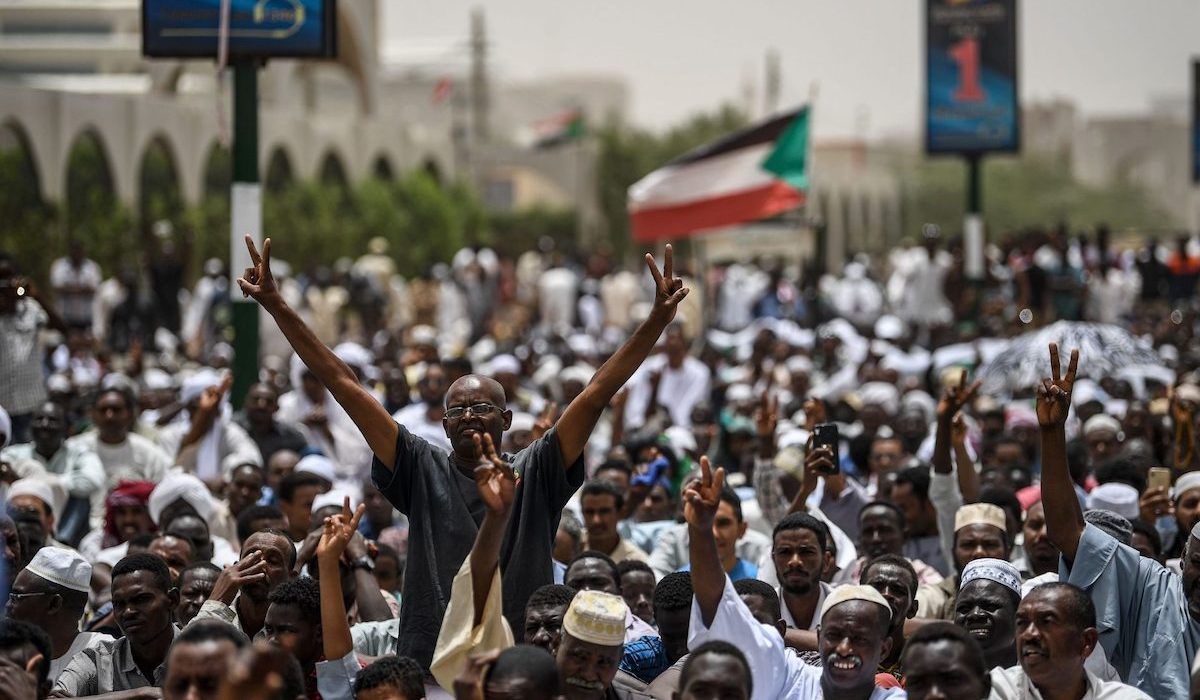On June 3, 2019, images and news struck of a brutal massacre in Khartoum, the capital of Sudan. Protesters were staging a sit-in outside of military headquarters when armed military began shooting into the crowd killing over 100 people and injuring around 326. Both men and women were brutally beaten and raped. Dead bodies were tossed into the River Nile. A nation’s cry rang throughout the world.
Internet and cellphone networks were cut off to eliminate the dissemination of information and limit the protester’s communication with one another. The protesters had no way of knowing who was dead or alive and Sudanese family members could only wait in anticipation and distress for news of their family members.
Tensions have been high in Sudan for decades, especially under the rule of President Omar Hassan Al-Bashir. Al-Bashir orchestrated a genocidal purge in Darfur that killed hundreds of thousands of people, one crime among many crimes the former president has yet to pay for. Resources began to run dry in Sudan as Al-Bashir ended fuel and wheat subsidies and became entangled in financial corruption. This sparked protest throughout the country that continued on for months by members of the rapidly declining middle class. Some of these clashes were met with tear gas and live bullets but nothing like the devastation that occurred earlier this month.
The protest movement began as doctors and other professionals fought for better bread prices and eventually, civilian rule. On April 11, Al-Bashir was unseated and confined to a prison in the capital. Generals took over the Transitional Military Council much to the dismay of the protesters, hence the continued protest. There is still speculation as to who is really behind the violence, the Transitional Military Council or the Rapid Support Forces, a paramilitary unit that carried out the genocide in Darfur in the 2000s.
As of now, most Instagram and other social media users have witnessed the blue profile pictures used to spread awareness of the horrors and destruction taking place in Sudan. Because of the internet blackout, many in Sudan were not able to get messages out about what was going on, so it is important that their message gets out and remains clear. If you would like to help end the violence in Sudan, spread awareness, help out with medical treatments, or push the United Nation’s intervention. Here is what you can do to help:
- Call your member of Congress. Call 202-224-3121. State your zip code. When connected, tell them you support helping the people of Sudan or send them George Clooney’s essay.
- Use ResistBot to text your members of Congress. Text RESIST to 50409 and it will help you contact your elected officials and tell them to help the people of Sudan.
- Give to UNICEF, which is working to help the children displaced by the conflict. Donate here
- Donate to Save the Children, which has been working in Sudan since 1984. Donate here. If you prefer the International Rescue Committee, it has been in Sudan since 1989 fighting malnutrition and helping displaced families. Donate here
- This Facebook campaign aims to raise funds for food and medicine for those in Sudan. Donate here
- Sign this Change.org petition demanding that “The UN must investigate the 3rd of June human rights violations in Sudan by the Military.” Sign here
- This GoFundMe campaign out of the U.K. claims to be working with a Sudanese group to bring emergency medical aid to Sudan. Donate here.
- This GoFundMe campaign is dedicated to providing medical support for the group of non-violent protesters waging a sit-in. Donate here
For further reading, the New York Times, The Guardian, and BBC have great information about the history and turmoil brewing in Sudan.


